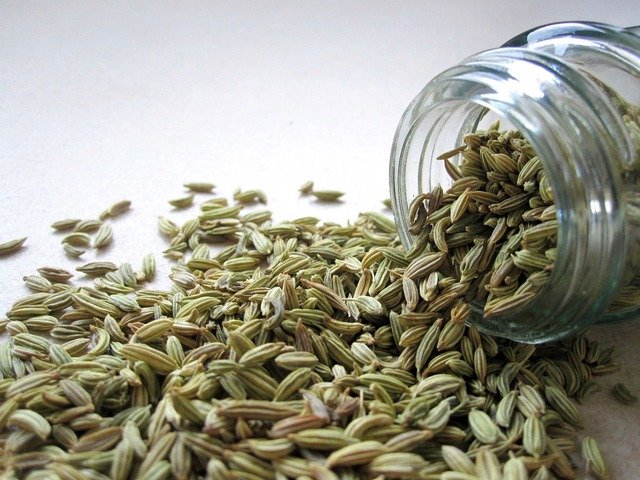
Introduction:
“Are grapes a no-go during pregnancy?” This question, often whispered in prenatal yoga classes and discussed in online pregnancy forums, reflects a common uncertainty faced by expectant mothers. Pregnancy is a journey filled with joy, anticipation, and a fair share of confusion, especially when it comes to dietary choices. Among the myriad of do’s and don’ts, the debate about eating grapes stands out, leaving many pregnant women perplexed.
In this essential read, we’re diving into the heart of this grape debate. We understand that every bite and sip during pregnancy is chosen with care, as it’s not just about nourishing yourself but also about nurturing the new life growing within you. Grapes, with their juicy sweetness and bursting nutrients, seem like a natural choice for a healthy snack. But then, whispers of caution echo – concerns about sugar content, digestive issues, and mysterious compounds like resveratrol.
As you read on, we’ll unravel the myths and lay out the facts. From the nutritional profile of grapes to trimester-specific advice, we’re covering it all. Whether you’re craving a bunch of these succulent fruits or just seeking clarity, this article promises to guide you through your grape dilemma with science-backed information and expert insights.
So, let’s embark on this grape exploration together, navigating the aisles of facts versus fiction, to ensure that your pregnancy diet is as healthy and worry-free as it should be.
The Nutritional Bounty of Grapes
Before diving into the swirling pool of myths and facts, let’s first unpack what grapes bring to your pregnancy table. Grapes, be they ruby red, deep purple, or vibrant green, are more than just a sweet treat. They’re a cornucopia of essential nutrients, each playing a vital role in your and your baby’s well-being.
Vitamins and Minerals Galore
- Vitamin C: A champion for your immune system, vitamin C in grapes aids in iron absorption, crucial during pregnancy for preventing anemia. It also plays a significant role in the development of your baby’s bones and teeth.
- Vitamin K: This vitamin is vital for blood clotting, an essential function during and after childbirth.
- Potassium: Alongside other minerals like calcium and magnesium, potassium in grapes supports the development and maintenance of healthy bones and muscles, both for you and your baby.
- Fiber: High water content paired with fiber makes grapes an excellent choice for combating the all-too-common pregnancy woe of constipation.
Antioxidants for Added Protection
- Grapes are rich in antioxidants like resveratrol and flavonoids. These compounds are your cellular knights, guarding against damage and reducing the risk of chronic diseases.
Hydration Helper
- With their high water content, grapes help keep you hydrated, a not-so-minor feat when you’re nurturing a life inside.
The Grape Debate: Addressing Your Concerns
With such an impressive list of benefits, why the hesitation around grapes during pregnancy? The primary concerns revolve around the sugar content, potential pesticide residue, and the presence of resveratrol. Let’s dissect these concerns:
Sugar Content: Grapes do contain natural sugars, which can be a concern for gestational diabetes or blood sugar levels. Moderation is key.
Pesticides: Conventionally grown grapes might carry pesticide residues. Opting for organic grapes or thoroughly washing them can alleviate this concern.
Resveratrol: While touted for its health benefits, excessive amounts of resveratrol have raised flags. However, the amount of resveratrol in grapes is significantly lower than the quantities linked to potential risks.
Grapes in Your Pregnancy Diet: Safe or Not?
The burning question remains: are grapes safe during pregnancy? The answer, backed by nutritionists and health experts, is a reassuring ‘Yes,’ but with a caveat of moderation. Let’s break this down further.
- Moderation is the Key
- Like any food, overindulgence in grapes can lead to issues. The natural sugars in grapes can affect blood sugar levels, a concern especially for those with gestational diabetes. The ideal approach? Enjoy grapes as a part of a balanced diet, savoring them in reasonable portions.
- Choosing the Right Type
- Seedless grapes are often recommended for their ease of consumption. If you prefer seeded varieties, consider removing the seeds to avoid any choking hazards.
- Washing Grapes Thoroughly
- To minimize the risk of pesticide exposure, wash your grapes thoroughly under running water. This simple step can significantly reduce any surface chemicals or bacteria.
- Organic Options
- If possible, choose organic grapes. They are grown without synthetic pesticides and may reduce your exposure to potentially harmful chemicals.
Trimester-Specific Grape Guidance
As your pregnancy progresses, your dietary needs and restrictions evolve. Here’s how grapes fit into each trimester:
- First Trimester: A great source of folic acid, grapes support the neural tube development of your baby. Their high vitamin content is also beneficial for your changing body.
- Second Trimester: The fiber in grapes can be particularly helpful as your digestive system adjusts to pregnancy changes.
- Third Trimester: There’s some debate about consuming grapes in this stage due to concerns about heat generation in the body. However, moderate consumption remains safe for most women. It’s always best to consult with your healthcare provider for personalized advice.
Grapes and Digestive Health in Pregnancy
Constipation is a common complaint in pregnancy, and the dietary fiber in grapes can offer some relief. By promoting regular bowel movements and maintaining healthy gut flora, grapes can be a natural remedy to this frequent discomfort.
Alternatives to Fresh Grapes
Not a fan of fresh grapes or looking for variety? Grape juice, especially when pasteurized, can be a safe alternative. However, be mindful of the sugar content in these processed forms. Dried grapes, or raisins, are also a nutritious option but remember that they are more concentrated in sugars.
Addressing the Resveratrol Concern
A key point of contention about consuming grapes during pregnancy revolves around resveratrol. This compound, found predominantly in the skin of red grapes, has been celebrated for its antioxidant properties. However, its impact on pregnancy remains a topic of ongoing research.
- Understanding Resveratrol: Resveratrol is known for its potential health benefits, including heart health and anti-inflammatory properties. The concern in pregnancy primarily stems from high-dose supplements, not the natural amount found in grapes.
- The Reality Check: The concentration of resveratrol in grapes is significantly lower than the doses that have raised concerns in studies. Thus, eating grapes in moderation is generally considered safe during pregnancy.
Incorporating Grapes into Your Pregnancy Diet
Grapes can be more than just a snack; they can be a versatile addition to your pregnancy diet. Here’s how to incorporate them healthily and deliciously:
- As a Fresh Snack: Grab a handful of washed grapes for a quick, nutritious snack.
- In Salads: Add grapes to your salads for a burst of sweetness and texture.
- In Smoothies: Blend grapes with other fruits and yogurt for a refreshing smoothie.
- As a Dessert Alternative: Use grapes to satiate sweet cravings in a healthier way.
Consulting Your Healthcare Provider
While this guide aims to provide comprehensive information, every pregnancy is unique. It’s always best to consult with your healthcare provider regarding any dietary concerns or questions, especially if you have conditions like gestational diabetes.
Conclusion: Grapes as a Part of a Balanced Pregnancy Diet
In conclusion, grapes, with their rich nutrient profile, can be a beneficial part of a pregnancy diet when consumed in moderation. Whether you’re snacking on them fresh, adding them to your meals, or sipping them in juice form, grapes can offer both flavor and nutrition. Remember, the key to a healthy pregnancy diet is balance and variety, and grapes can be a delightful part of this mix.
As we demystify the concerns around eating grapes during pregnancy, we hope this guide has provided you with the clarity and confidence to enjoy these juicy fruits while nurturing the life within you.
FAQ Section: Answering Your Grape-Related Queries
To further aid in your understanding and to address common queries, here’s a comprehensive FAQ section:
- Can eating grapes cause gestational diabetes?
- No, eating grapes in moderation will not cause gestational diabetes. However, due to their natural sugar content, women already diagnosed with gestational diabetes should consult their doctor regarding grape consumption.
- Are there any grape varieties that are best avoided during pregnancy?
- No specific grape variety needs to be completely avoided during pregnancy. The key is moderation and ensuring the grapes are washed thoroughly.
- Can consuming grapes lead to weight gain during pregnancy?
- While grapes are a healthier snack option, like any food, excessive consumption can contribute to weight gain. Balance and portion control are important.
- Is it safe to drink grape juice during pregnancy?
- Yes, it’s safe to drink pasteurized grape juice. However, watch out for added sugars and preservatives in commercial juices.
- Do grapes increase the risk of allergies in pregnant women?
- Grapes are not typically associated with an increased risk of allergies. However, if you have a known fruit allergy, it’s best to consult with your healthcare provider.
- How many grapes can I safely eat per day during pregnancy?
- There’s no fixed number, but a small to moderate serving, such as a handful of grapes, is considered safe. Listen to your body and eat according to your appetite.
- Can eating grapes help with pregnancy-related constipation?
- Yes, grapes can help alleviate constipation due to their fiber content. They are a natural and gentle way to promote regular bowel movements.
- Should I choose organic grapes during pregnancy?
- Organic grapes are a good choice to reduce exposure to pesticides. If organic isn’t available, make sure to wash the grapes thoroughly.
- Can I eat grapes in my first trimester?
- Yes, grapes can be eaten in the first trimester. They provide essential nutrients beneficial for early pregnancy.
- Are dried grapes (raisins) safe during pregnancy?
- Yes, raisins are safe but consume them in moderation due to their higher sugar concentration compared to fresh grapes.
Encouraging Community Sharing and Engagement
We’d love to hear from you! If you have any personal tips, experiences, or additional questions about eating grapes during pregnancy, please feel free to share them in the comments section below. Your insights could be invaluable to other expectant mothers navigating their pregnancy journey.













